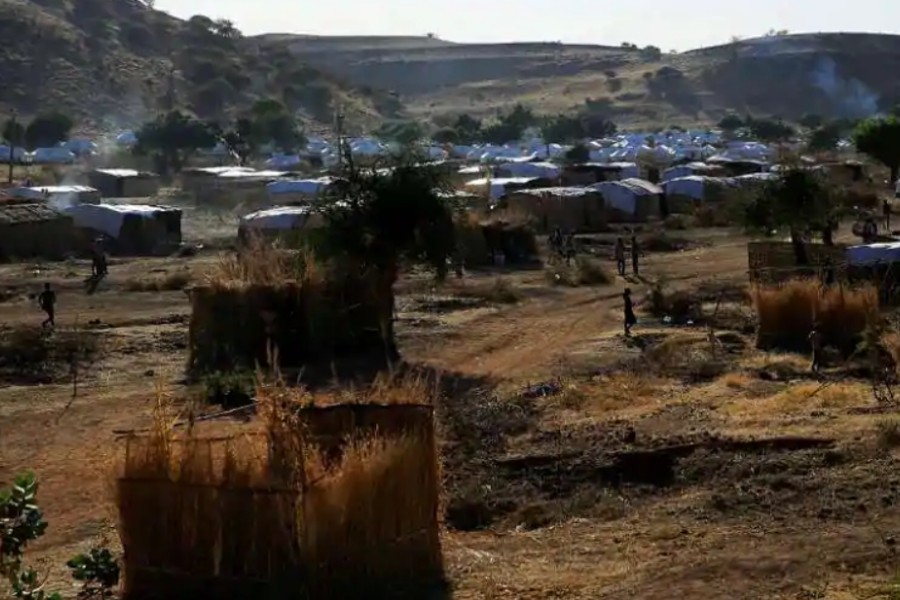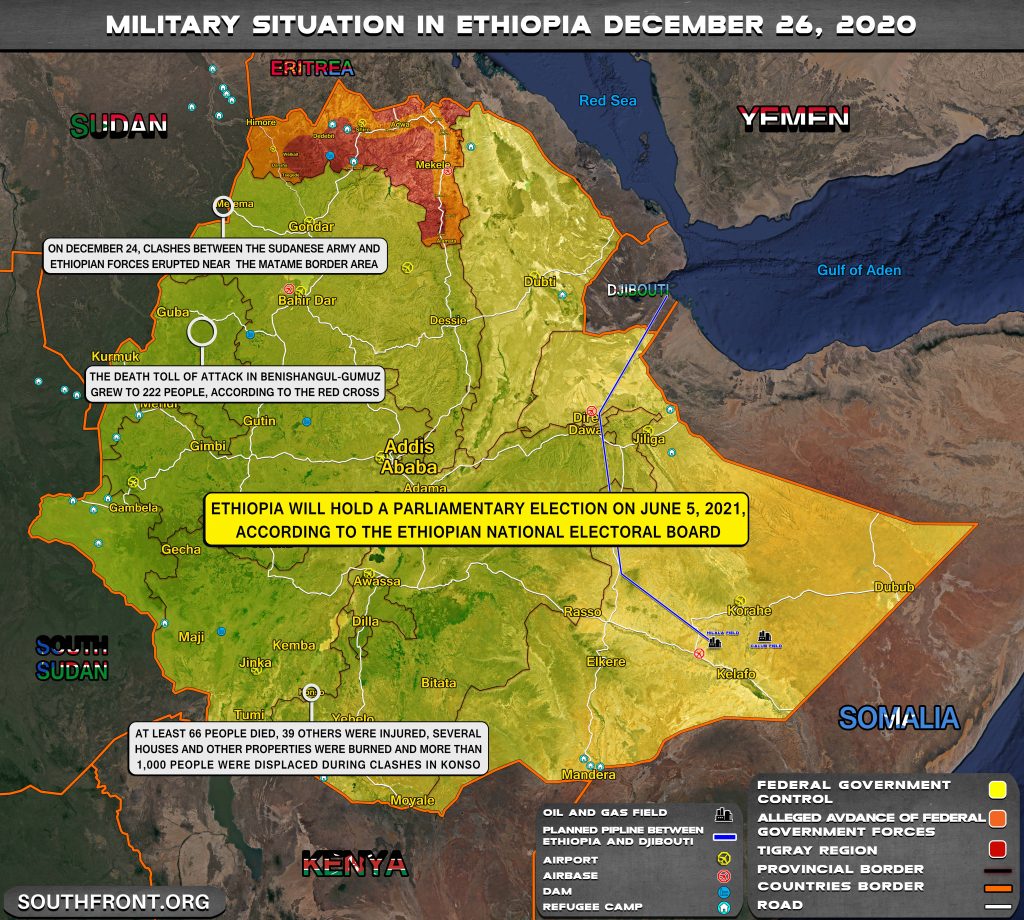On December 23rd, at least 220 have reportedly been killed following an ethnic massacre in Ethiopia, a Red Cross volunteer has said.
This is the same incident from previous reports that said that at least 102 had been killed back on December 23rd, in Ethiopia’s western region of Benishangul-Gumuz.
Homes were torched in the massacre that took place in Bekoji in Bulen county in the Metekel zone that borders Sudan, amid rising ethnic tensions.
The death toll was originally estimated to be more than 100 by the state-appointed Ethiopian Human Rights Commission.
But Melese Mesfin, who volunteers for the Red Cross, said that the organisation had buried the bodies of 207 victims and 15 attackers.
A Bulen county spokesman confirmed 207 people were killed and that 40,000 more had fled their homes due to the fighting.
Reuters reported that the military were then sent in before killing 42 armed men accused of being behind the attack.
Fana TV, citing regional officials, reported that soldiers seized bows, arrows and other weapons in the raid.
Ethiopia’s Prime Minister Abiy Ahmed said forces were deployed to the region, an area which has seen regular ethnic violence.
“The massacre of civilians in Benishangul-Gumuz region is very tragic,” Abiy said on Twitter. “The government, to solve the root causes of the problem, has deployed a necessary force.”
The state-run Ethiopian News Agency said five senior local officials were also arrested y in connection with security issues in the Benishangul-Gumuz region.
Abiy and senior officials had visited the region on December 22nd to call for calm after multiple deadly attacks in recent months, such as a November 14 assault in which gunmen targeted a bus and killed 34 people.
“We have been hearing this for more than a month now. The ethnic conflict in Ethiopia has been regular and there has to be a comprehensive solution as we have seen they are not going to be contained by command like the government has attempted to do in the past,” Ethiopian researcher and lawyer Mastewal Taddese said.
Amnesty International, which spoke with five survivors, said members of the ethnic Gumuz community attacked the homes of ethnic Amhara, Oromo and Shinasha people, setting them on fire and stabbing and shooting residents.
The Gumuz see minorities as “settlers”, the rights group said, adding that dozens of people are still unaccounted for.
- Ethiopia will hold a parliamentary election on June 5, 2021, according to the Ethiopian National Electoral Board;
- At least 66 people died, 39 others were injured, several houses and other properties were burned and more than 1,000 people were displaced during clashes in Konso;
- On December 24, clashes between the Sudanese Army and Ethiopian forces erupted near the Matame border area;
- The death toll of attack in Benishangul-Gumuz grew to 222 people, according to the Red Cross.
Prime Minister Abiy Ahmed called the attack a “massacre” and deployed federal troops there the next day. The military killed 42 armed men accused of attacking the village.
Ethiopia has been grappling with outbreaks of deadly violence since Abiy was appointed in 2018 and accelerated political reforms that loosened the state’s iron grip on regional rivalries.
Elections due next June have further inflamed rivalries over land, power and resources.
Prime Minister Abiy Ahmed issued a statement on Twitter condemning the tragedy:
“The massacre of civilians in Benishangul Gumuz is a tragedy. I am deeply saddened by the inhumane treatment of our people. Our efforts to solve the problem in various ways have not yielded the desired results.
The goal of our enemies is to disperse the powerful forces we wield against the Junta. This will not work. The government has taken the necessary steps to address the root causes.
I urge all of us to work as hard as we can to achieve the desired results.”
The war for the Tigray region, against the Tigray People’s Liberation Front (TPLF) was reportedly concluded in victory for the central government’s forces, but clashes continue sporadically, at the same time ethnic tensions appear to be on the breaking point and attacks such as these are beginning to happen, once again.
MORE ON THE TOPIC:







